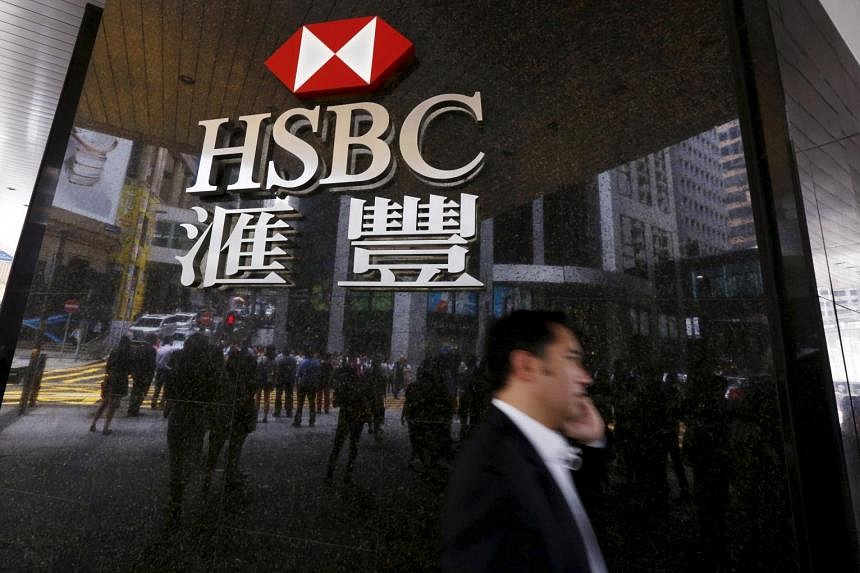HONG KONG (Bloomberg) - HSBC shares fell the most in eight weeks, pacing declines among bank stocks in Asia, as speculation mounted of a possible Greece exit from the euro region that would destabilize Europe's currency union.
HSBC, which made about a third of its 2014 revenue in Europe, lost 2 per cent to HK$70.55 as of the midday break in Hong Kong, its biggest intraday drop since May 4. Japan's Topix Banks index tumbled the most in 16 months, while Australia's four biggest lenders lost at least 2 per cent each.
Some investors are weighing the exposure of Asian banks to any possible instability in Europe after Greece moved to shut lenders and impose capital controls. The country's Prime Minister Alexis Tsipras called for a July 5 referendum on a proposed bailout package, which spurred savers to start withdrawing money at the weekend.
For Asian banks, "who knows what happens if the euro collapses," said Andrew Clarke, Hong Kong-based director of trading at Mirabaud Asia Ltd. "That's the point really, it's the uncertainty of what happens next."
HSBC, based in London, is monitoring developments in Greece, Gareth Hewett, a Hong Kong-based spokesman, said by e-mail Monday.
Bank of Tokyo-Mitsubishi UFJ Ltd. had "minimal" exposure to Greece, said Go Watanabe, the Asia-Oceania chief executive officer of Mitsubishi UFJ Financial Group Inc.'s main lending unit. While some of its customers may be exposed, the bank was seeing no signs of panic, he said in an interview from Singapore on Monday.
Mitsubishi UFJ slid as much as 4.1 per cent, while Mizuho Financial Group Inc. lost 5.9 per cent, the steepest intraday decline in two years. The banks each had more than US$6 billion of exposure to southern European nations and Ireland as of March, figures from their websites show.
"Greece isn't a concern for Japanese banks, which basically have zero exposure to the country," said Takashi Miura, a Tokyo-based analyst at Credit Suisse Group AG. "Nonetheless, financial stocks and particularly banks tend to be sold when this kind of risk-off scenario affects highly liquid markets overseas."
Shinsuke Baba, chief executive officer of Tokyo-based Aozora Bank Ltd., told reporters he doesn't expect the Greece crisis to have a significant impact on his company's business. Aozora lost as much as 3 per cent, the most since March 31.
Australia & New Zealand Banking Group Ltd. sank 2.9 per cent in Sydney, leading the nation's lenders lower. Australian banks had A$52 billion exposed to Europe as of September, representing 1 per cent of their global assets, according to the latest available central bank data.

